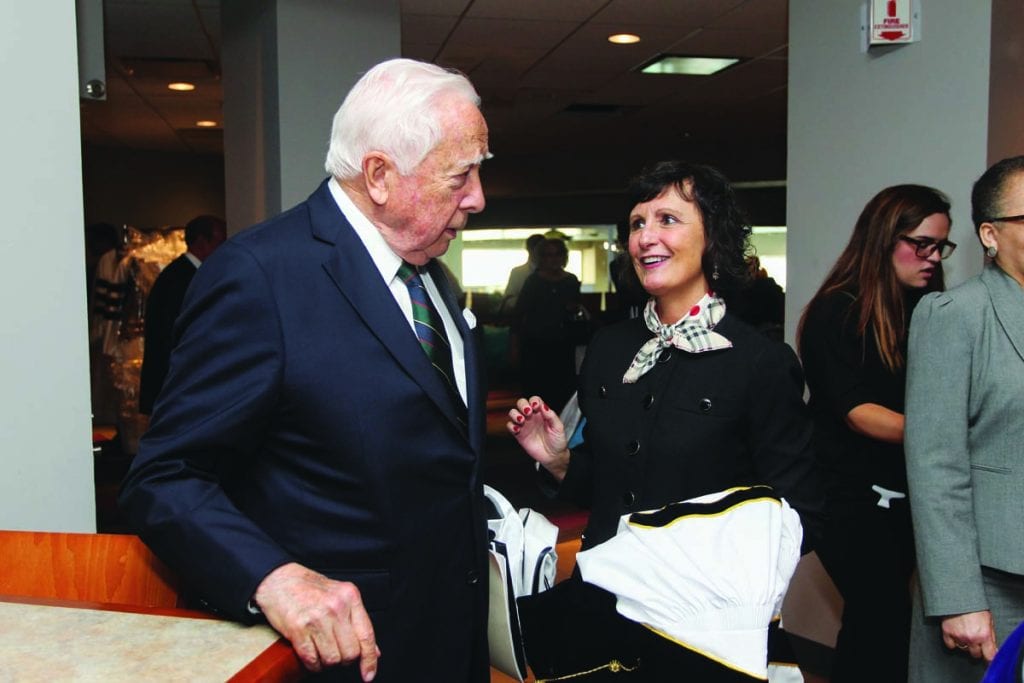All rise for Lisa M. Schenck ’83 & ’18Hon.
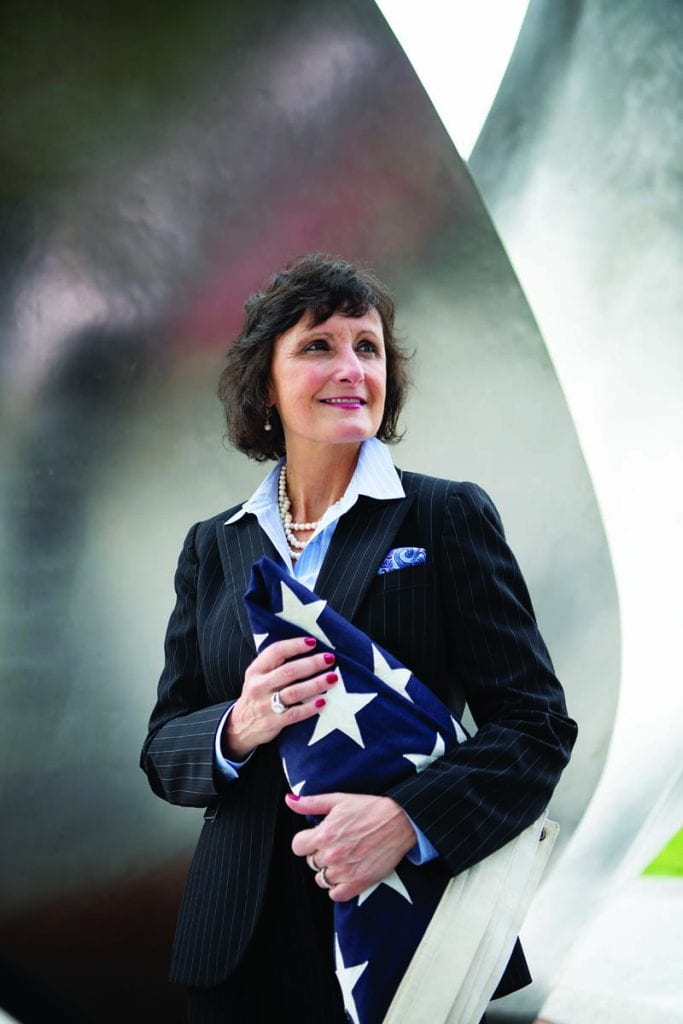
By Vicki-Ann Downing
Lisa M. (Thibault) Schenck ’83 & ’18Hon. retired from the Army a decade ago with the rank of colonel and 25 years of service as a military judge, lawyer, and instructor. Since then, she’s been preparing a new generation of lawyers as associate dean for academic affairs at The George Washington University Law School.
Her many achievements — which include four law degrees — led Providence College to award her an honorary doctor of laws degree at commencement in May. Her accomplishments came in a world traditionally dominated by men — but that was not a problem.
“As all professional women do, I faced some challenges,” said Schenck. “But the military has been in the vanguard of equal opportunity for decades. I received excellent assignments and mentoring, and I was delighted to help both the women and men who worked with me so they could succeed and advance.”
In August, the White House nominated Schenck to be a judge on the Court of Military Commission Review. The court sits in Washington and hears appeals from detainees at Guantanamo Bay. Schenck, who was a judge on the court from 2007- 2008, will retain her position at the law school while serving.
Schenck grew up in Somerset, Mass., the second of five daughters. She majored in political science at PC and joined ROTC at the urging of her father, Robert, a chief warrant officer in the Army National Guard. Two sisters and two future brothers-in-law joined the Guard, too.
Schenck wanted a law career, not a military one. She managed to attain both.
From her first days at PC, it was clear that Schenck was someone special, said her classmate and longtime friend, Colleen Cronin Duffy ’83, a lawyer and PC trustee.
“Lisa just had a way of understanding academia,” said Duffy. “She knew, just from listening in class and doing the reading, exactly what to expect on our first Civ exam. She told us, ‘Study these topics and you’ll do well.’ We were skeptical, but she said, ‘Look, it’s obvious.’ And sure enough, those were the questions on the test. She had this ability to grasp material, synthesize it, understand it, and make it her own. I had no doubt she was going to achieve at the highest level.”
As much as she excelled in her studies, Schenck loved fun. She was a cheerleader for the men’s hockey team. She was the first to come up with a costume theme for friends every Halloween. She leaped into planning campus events, such as the Battle of the Dorms.
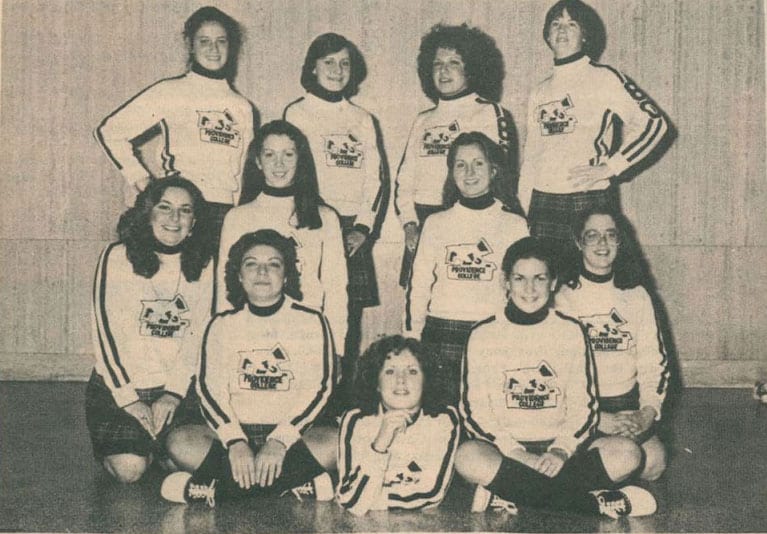
Schenck tells a story about the Blind Date Ball. Her ROTC instructor warned her to be awake the next morning in time to catch the bus for their required land navigation practice. Despite her best intentions, Schenck missed the bus and the training. During the test that summer at Fort Bragg, N.C., she was dropped into the woods with only a compass for navigation, yet still achieved the highest grade among the cadets in her company.
“That was total God, though,” Schenck insists. “I was really lost.”
Schenck’s self-deprecating humor masks an extraordinary ability to succeed, Duffy said.
“She was probably one of the most brilliant, yet unassuming, students at Providence College,” said Duffy. “She would accomplish at the highest level, but would downplay all of that with a sense of humor. She is no-nonsense about everything. For example, Lisa’s mom says that Lisa has all these top-secret security clearances, and the only reason that her family knows about them is because they are contacted as part of the background check. Lisa never mentions it to anyone.”
After graduation, Schenck requested an assignment in military intelligence. Instead, she was sent to the Army Signal Corps at Fort Monmouth, N.J., to be an electrical engineer. She managed to turn the situation to her advantage, working in project management on a major communications initiative, then becoming assistant secretary of the general staff. At night, she took courses at Fairleigh Dickinson University to earn a master’s degree in public administration.
“I wanted to learn something new every day,” said Schenck. “I would report for work with the general at 4:30 a.m., leave for class from 5:30 to 7:30 p.m., then return to work until 10 p.m. I lived in the bachelor officer quarters, and I tried to do my daily run in the dark.”
Schenck still had her eye on law school. She applied for the Army Funded Legal Education Program and was one of only 10 officers selected in the country. She went to Notre Dame Law School for three years — “perfect for me, a beautiful place, just like PC” — spending each summer on military duty. After graduating in 1989, she asked to be sent to South Korea, where she worked as a military prosecutor and met her husband, James R. Schenck, a West Point graduate and Black Hawk helicopter pilot.
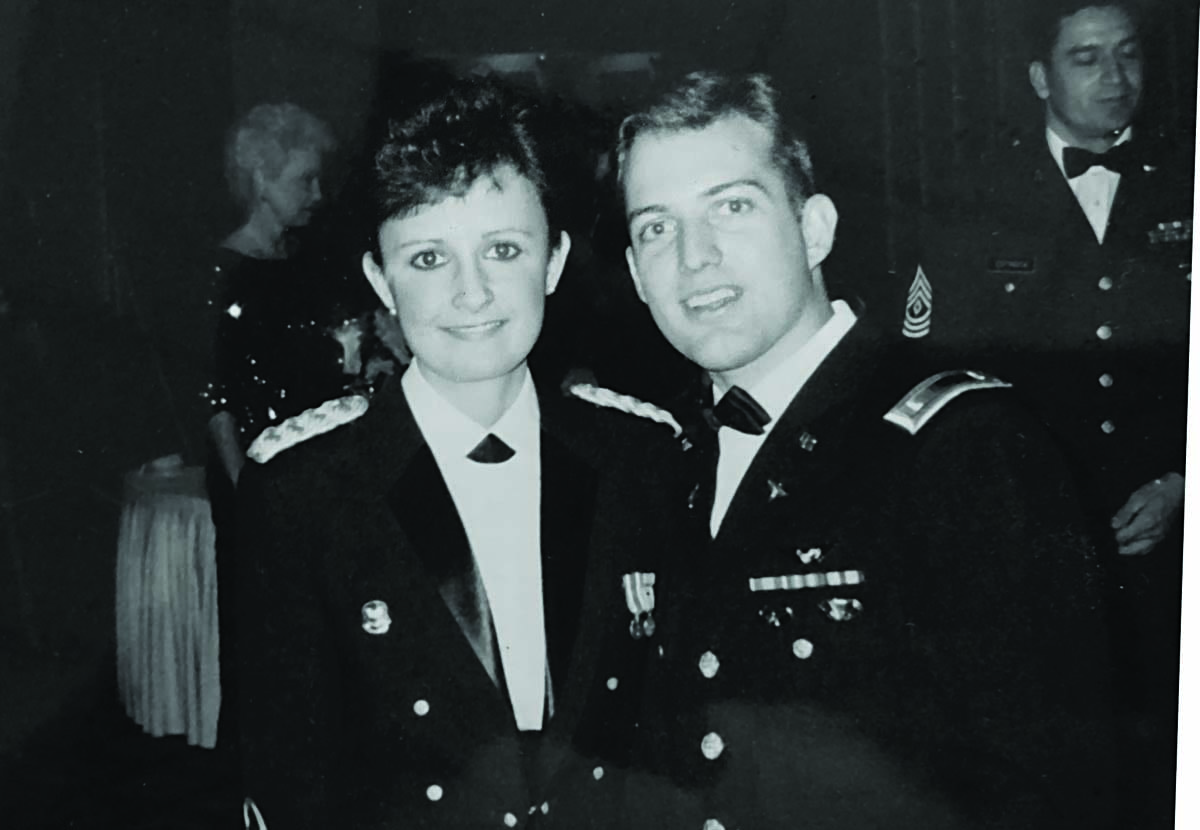
were serving in South Korea. This photo is from 1990.
During the next 20 years, while serving the Army in Alabama; teaching at the U.S. Military Academy at West Point, N.Y., and in Washington, D.C.; and raising a son, James Jr., Schenck managed to earn three additional law degrees: a master of laws degree in military criminal law from the U.S. Army Judge Advocate General’s Legal Center and School in Charlottesville, Va., in 1995; a master of laws degree with a concentration in environmental law from Yale Law School, again through the Army Funded Program, in 1998; and a doctor of the science of law degree, focusing on international and environmental law, from Yale Law School in 2007.
Her training in environmental law allowed her to advise generals who were testifying at congressional hearings about the impact of environmental restrictions on the military. Her extensive legal experience led to her appointment in 2002 as a military judge on the U.S. Army Court of Criminal Appeals, the highest court in the Army. Three years later, she became the first woman appointed senior judge, leading a panel of three, a position she held until her retirement in 2008.
Schenck then served as senior adviser to the Defense Task Force on Sexual Assault in the Military Services, which had been mandated by Congress to produce a report in one year. The recommendations included a need for institutional change to more effectively prevent sexual assault and address related issues.
“Sexual abuse has no place in the military,” Schenck said. “This principle is simple to state. What is more complicated is how to prevent it from happening, detecting abuse when it does occur, responding to the needs of victims, and addressing the misconduct of perpetrators. The task force took the mission seriously, and I was honored to participate.”
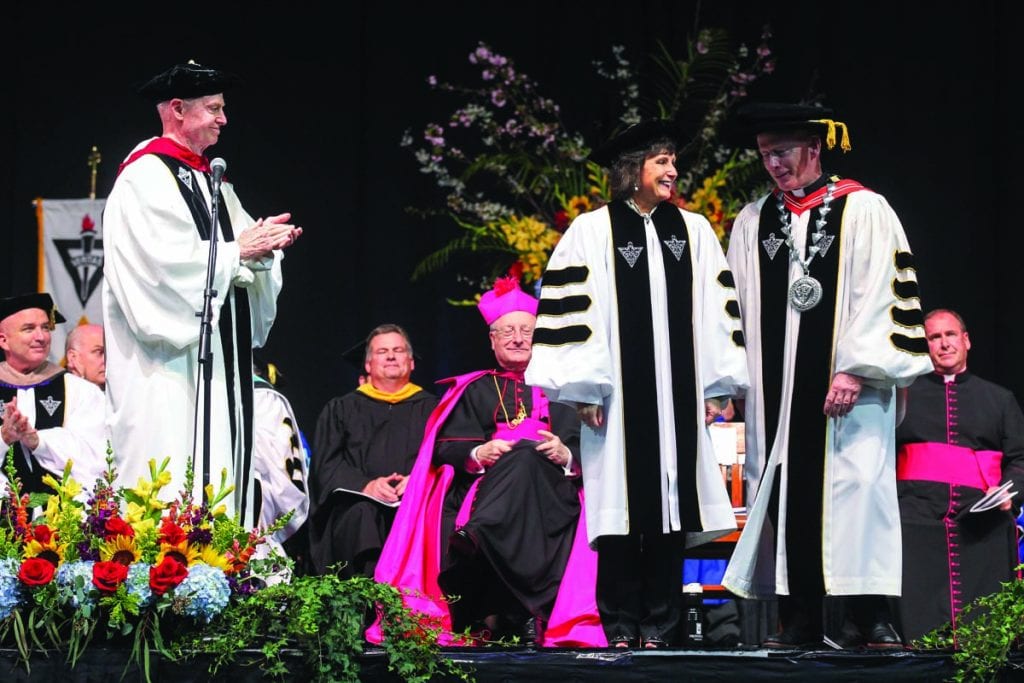
In addition to serving as associate dean at GWU Law School, Schenck is a professorial lecturer in law and teaches a course she created, Military Justice. She also directs the National Security and U.S. Foreign Relations Law LL.M. Program and the National Security and Cybersecurity Law LL.M. Program. GWU is the top source of law school applicants who want to serve in the Army Judge Advocate General’s Corps, Schenck said. Her husband, who also served in the Army, is president and CEO of Pentagon Federal Credit Union. Their son is studying economics at Dartmouth College.
“At Providence College I learned from the motto of Veritas — Truth — and the Catholic teaching of selfless giving,” said Schenck. “Throughout my professional career, those values of personal integrity and selfless service provided me with the foundation to succeed.”
